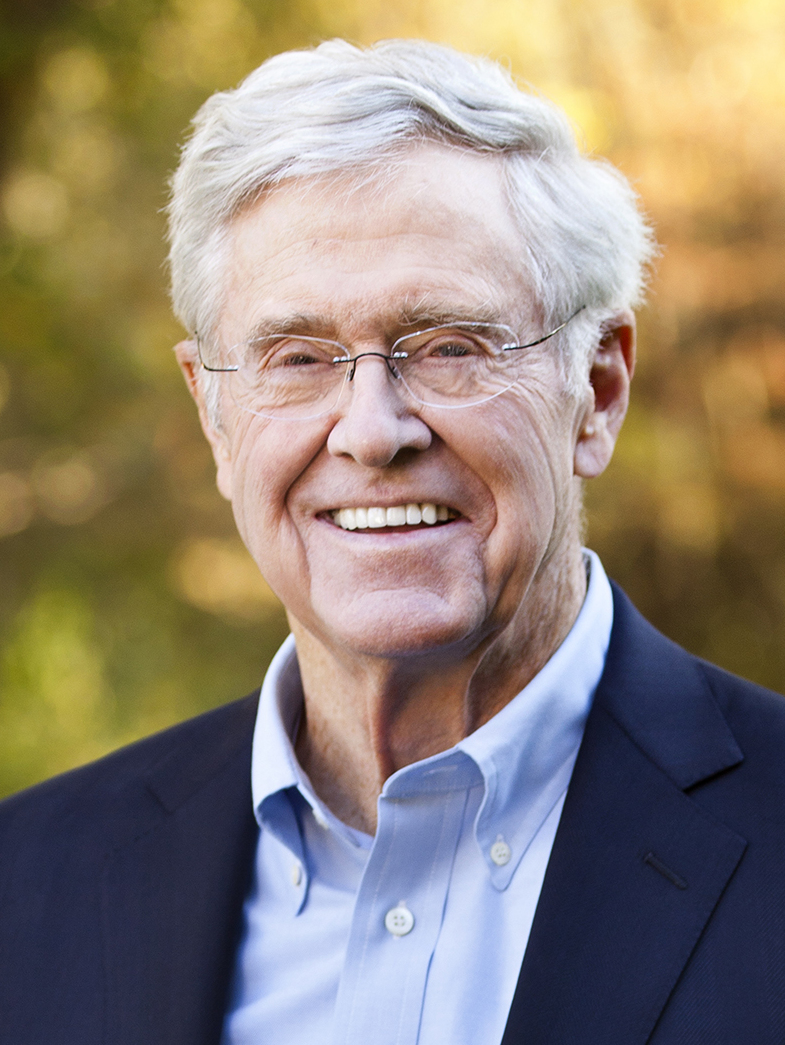
British Petroleum (BP), Shell, ExxonMobil and Norwegian oil and gas producer, Equinor, have all released statements indicating they are severing business ties with Russia in response to its invasion of Ukraine. But billionaire oil baron Charles Koch, who has sat at the helm of Koch Industries for more than half a century, has been unusually quiet about his plans for his sprawling Russian operations.
According to Koch Industries, one of the largest private corporations in the world, three of its companies operate in Russia: Molex, a manufacturer of semi-conductors, printed circuits, fiber optics and a multitude of other electrical components; Koch Engineered Solutions, which makes process and pollution control equipment; and Guardian Industries, a glass and auto parts manufacturer. Another unit of Koch Industries, Koch Supply and Trading, has a history of trading Russian oil.
Guardian Industries’ division, Guardian Glass, has two large plants in Russia: one in Ryazan and one in Rostov. The Rostov plant was described as follows in a 2011 press release from Guardian Glass:
“The $220-million plant will be Guardian’s largest, producing 900 tons of glass per day, and will include a technologically advanced glass coater.
“The Rostov plant will produce Guardian’s high-performance, energy-efficient ClimaGuard(R) (residential) and SunGuard(R) (commercial) glass products for construction of homes, offices, retail, health-care and other facilities. The plant is expected to begin operation in mid-2012, based on fulfillment of all incentives and agreements with local authorities, and will initially create 300 new jobs…
“The location is a good fit for Guardian’s growth strategy to supply glass to Russia and neighboring countries….”
Should Charles Koch be supplying glass for “homes, offices, retail, health care” in Russia while Russian President Vladimir Putin, in the name of Russia, is bombing homes, offices and hospitals into rubble in Ukraine and ruthlessly killing innocent children and families?
In addition to imposing sweeping financial sanctions, both the European Union and the U.S. have imposed sanctions intended to strip Russia of technology that would allow its economy to advance while it bombs its neighbor and makes thinly-veiled threats about its potential use of nuclear weapons. According to the European Council on Foreign Relations, this is what those technology sanctions consist of:
“The long list of advanced technologies subject to de facto bans on exports to Russia includes semiconductors, telecommunications equipment, software (including that for encryption), lasers, aviation and space systems, and oil-refining machinery. While EU sanctions are limited to sales and exports to Russia from within the union, the US now prohibits exports to Russia and Belarus from anywhere in the world of any product created using American software or equipment. With other important tech players such as South Korea, Japan, and Taiwan having joined the blockade, Russia is largely cut off from the global high-tech industry.”
This raises the question as to whether products produced within Russia by U.S. corporations need to be separately sanctioned. Other major corporations did not need to have that spelled out and quickly announced that they were severing relationships with Russia. Koch, however, is not known for altruistic behavior. In fact, it is known for exactly the opposite.
Related posts:
Views: 0
 RSS Feed
RSS Feed
















 March 9th, 2022
March 9th, 2022  Awake Goy
Awake Goy  Posted in
Posted in  Tags:
Tags: 
















